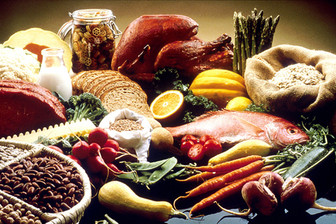Government Grants
Business Grants
Home Owner Programs
Federal Programs
About Us
Bill Emerson Humanitarian Trust
Established in 1862, the Department of Agriculture serves all Americans through anti-hunger efforts, stewardship of nearly 200 million acres of national forest and rangelands, and through product safety and conservation efforts. The USDA opens markets for American farmers and ranchers and provides food for needy people around the world.
Program Accomplishments
None.
Uses and Use Restrictions
The Secretary may release eligible commodities only to the extent such release is consistent with maintaining the long-term value of the trust.
Eligibility Requirements
Applicant Eligibility
Developing countries that suffer from natural disasters (such as extreme drought, flood, earthquake, etc.), prolong war, prolong diseases, and/or acute hunger.
Beneficiary Eligibility
Developing countries.
Credentials/Documentation
None. This program is excluded from coverage under OMB Circular No. A-87.
Aplication and Award Process
Preapplication Coordination
There is no preapplication coordination related to this program.
This program is excluded from coverage under E.O.
12372.
Application Procedures
None.
Award Procedures
None.
Deadlines
None.
Authorization
Sections 301 and 302, Title III of Bill Emerson Humanitarian Trust. Section 302 (c) of the Agricultural Act of 1980, as amended. The Emergency Wartime Supplemental Appropriations, Public Law 108-11.
Range of Approval/Disapproval Time
From 1 to 30 days.
Appeals
None.
Renewals
None.
Assistance Considerations
Formula and Matching Requirements
Release of commodities from the Trust can be triggered in two situations: 1) when domestic supplies are insufficient to meet the availability criteria of Public Law 480, or 2) when unanticipated needs for Title II, Public Law 480 commodities cannot be met in a timely manner under normal means of obtaining commodities. In the second situation, the Secretary is authorized to release up to 500,000 metric tons from the Trust plus an additional 500,000 metric tons that could have been but was not released, in previous years.
Length and Time Phasing of Assistance
The reserve was originally authorized by the Agricultural Trade Act of 1980 as the Food Security Wheat Reserve. Subsequent legislation broadened the number of commodities that can be held in the reserve and, in 1998, it was renamed the Bill Emerson Humanitarian Trust. Most recently, the Farm Security and Rural Investment Act of 2002 reauthorized the Emerson Trust through 2007.
Post Assistance Requirements
Reports
None.
Audits
None.
Records
None.
Financial Information
Account Identification
12-4336-0-7-151.
Obigations
(Includes CCC transfer funds) FY 07 $0; FY 08 est not available; and FY 09 est not reported.
Range and Average of Financial Assistance
Not applicable.
Regulations, Guidelines, and Literature
Program is announced through news media and is posted on Farm Service Agency website. Regulations published in Title III of Bill Emerson Humanitarian Trust. EHT fact sheet may be located online at http://www.fas.usda.gov/excredits/pl480/Emersontrust.htm.
Information Contacts
Regional or Local Office
None.
Headquarters Office
Department of Agriculture, Farm Service Agency, Kansas City Commodity Office, 6501 Beacon Drive, Kansas City, MO 64131-4676. Telephone: (816) 926-6715.
Criteria for Selecting Proposals
The Secretary is authorized to release commodities from the reserve to meet unanticipated emergency needs that cannot otherwise be met under Public Law 480, the U.S. government's major humanitarian food aid program. The Secretary is also authorized to release eligible commodities for use under Public Law 480 if the domestic supply of that commodity is determined to be in limited supply and would not meet the availability criteria of Public Law 480.
Social Entrepreneurship
Spotlight
When it Comes to Social Enterprises, Failure is the Best Platform for Innovation

In the world of social enterprises, failure is a cringe-worthy moment nobody wants to talk about. But, social entrepreneurs can benefit from their failures.

